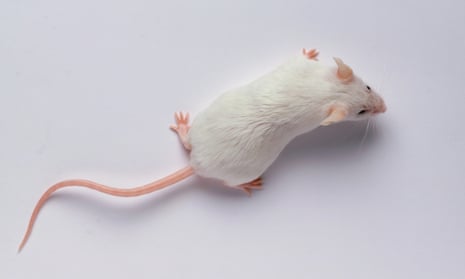Britain’s leading centre for mouse genetics is facing closure in a move that critics say will undermine crucial research on serious diseases and threaten the standing of UK science.
The Medical Research Council has told staff at its Harwell Institute in Oxfordshire that an internal strategy board recommended the closure of all academic work at the site, threatening research on diabetes, neurodegenerative disease, child deafness and other conditions.
The MRC’s Harwell Institute is home to the Mammalian Genetics Unit (MGU), an international research centre that studies gene function and how diseases and disorders such as infertility arise when genes go awry. It shares the site with the Mary Lyon Centre, an animal facility that houses genetically altered mice for research at MGU and institutions across the country and overseas. The Mary Lyon Centre has not been earmarked for closure.
Along with the closure of the MGU, where 125 scientists and 40 support staff work, the MRC board recommended pulling out of an international project to understand the “dark genome” - the genes in mice and equivalents in humans whose roles are almost completely unknown. Research by the International Mouse Phenotyping Consortium (IMPC) is under way at 20 research centres in more than a dozen countries.
“We’re perplexed,” said Steve Brown, the director of the MGU. “We don’t understand the decision. We need to have a pause to consider the impact on British science.” Neither staff nor partners of the IMPC had been consulted, he added.
Scientists at the MGU work closely with staff at the Mary Lyon Centre to understand genes and develop mouse models for genetic disorders. Closure of the MGU would lead to researchers dispersing to universities and other institutions and probably dropping their existing research, Brown said. A final decision on the proposed closure will be made after a month-long consultation with staff and unions.
Last month the Wellcome Trust said it would close the mouse facility at its Sanger Institute near Cambridge. The trust said its scientific strategy no longer required as many mice. So many staff had left the facility that researchers at Sanger had warned managers of a risk to animal welfare.
Brown said the closure of the Sanger mouse facility and the MGU would be a “double whammy” for research that drew heavily on mice. “We have to be extremely careful that we do not undermine what is a critical area of biomedical science,” he said. “This is a major threat to UK science and a weakening of our position at the forefront of genomic and precision medicine.”
In recent work, scientists at the MGU uncovered the genetic causes of glue ear, a form of chronic inflammation that causes deafness in children. The research paves the way for bespoke treatments that prevent hearing loss from progressing.
Robin Lovell-Badge, a geneticist at the Francis Crick Institute in London, said: “I am dismayed at this decision. The mouse genetics research that has been carried out at Harwell had been world-leading.” He said it was “extraordinary” for the recommendation to be reached without wider consultation. “This is ridiculous,” he said.
The MRC said its strategy board had recommended the MGU’s work be “discontinued” and moved to a “more distributed network of academic research”.
It said: “This is no reflection upon the value or quality of MGU science, but a reflection of the changing scientific landscape. Detailed proposals are now being developed in line with these recommendations, in consultation with staff. A final decision on the way forward will be made by MRC council in December 2019. MRC is supporting its dedicated staff during this challenging time.”
